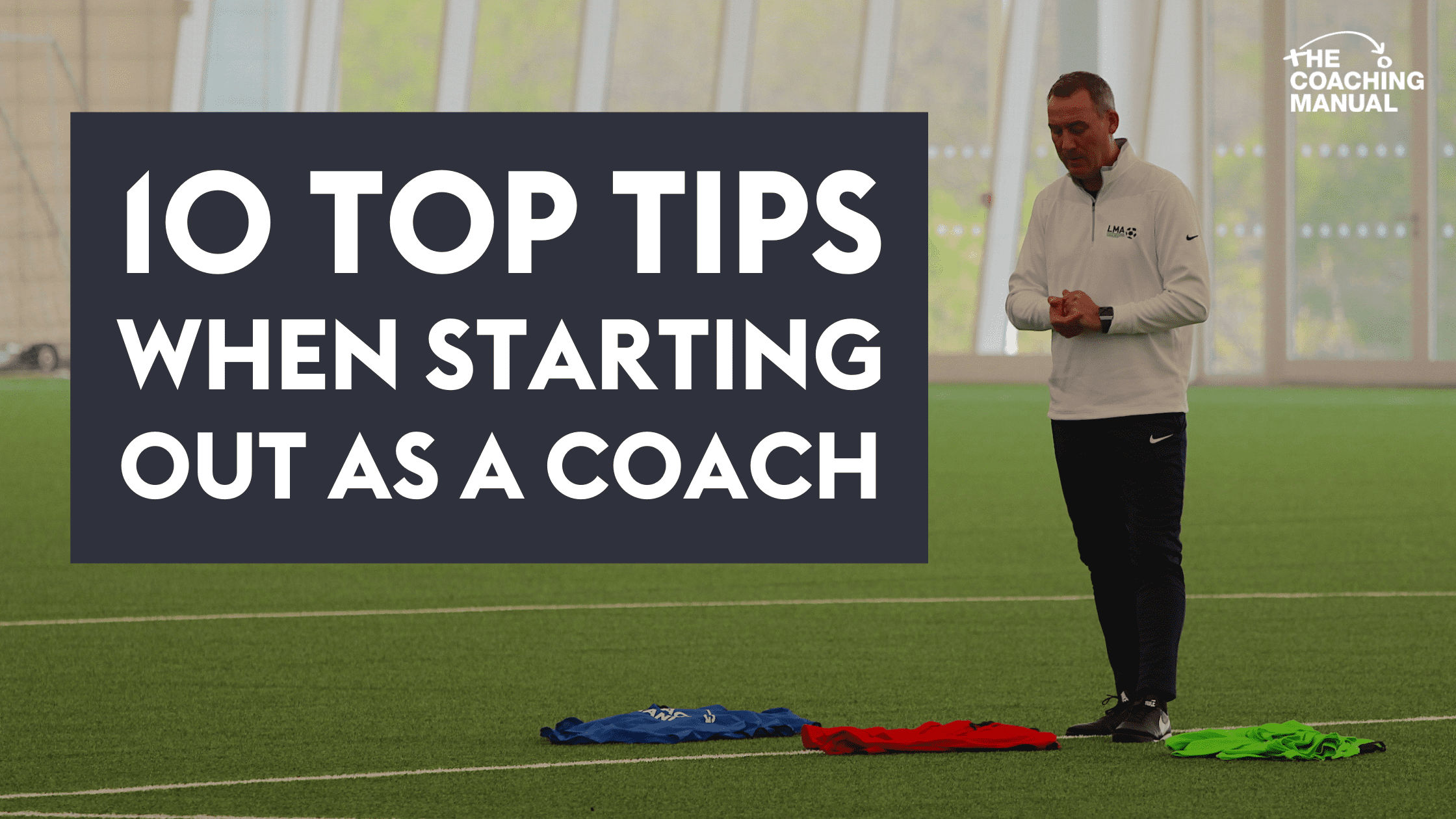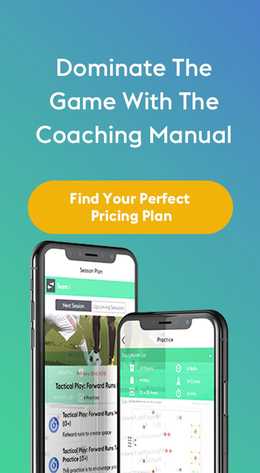1. Prepare your sessions
Planning out your session in the days before or the night before is essential to becoming a good coach. TCM has plenty of handy guides and tools that save you time when it comes to prep and planning, but some of the things to consider are:
- Think about aspects of your team’s game that didn’t go so well last week and incorporate practices that will improve these areas.
- Time can be limited so plan your timings for each part of the session so that you can cover everything you need to.
- Have a clear learning outcome. Figure out what the session will make your players better at and determine what the 'success' of this will look like.
- Picture where on the pitch you will carry out each part of the session.
How to plan a coaching session.
What to plan in a coaching session.
2. Warm-Up properly
Make sure that your players are warmed up properly before every training session and match. It’s important to do this so the players are ready for physical activity and have a reduced risk of injury. But it also allows their minds to prepare for what’s to come, especially before a match. This is the time where they get a feel for the pitch and the ball and it should get them in the right mentally to perform well.
In warm-ups before training, you can introduce aspects of what the main part of the session will include so the players have an idea of what to expect, which will help your session to run more smoothly.
Check out our FULL guide to warm-ups here.
3. Learn how to set up a training session
Setting up your session is a massive part of being a coach so there are a few things to consider to be sure you do this part effectively and efficiently:
- Arrive in good time - By arriving slightly earlier than the players you can set up the different exercises by the time they arrive so the session can flow smoothly. However, sometimes there can be other teams playing on the pitch before your slot therefore you can still arrive early and prepare your equipment ready to layout on the pitch. You can do this while your players are playing a small warm-up game that doesn’t require full supervision.
- Equipment - Make sure you bring all the necessary equipment needed to run your session effectively. Balls - fully pumped up, cones/markers - different colours if possible, whistle and a stopwatch.
- Know your session - As mentioned in the previous point it’s important to plan your session properly, so make sure you are familiar with your session before training so you know how to execute it effectively.
You can find a full guide on setting up your first session here.
4. Pick the brains of other coaches
Asking questions of coaches that you meet can be a very useful way of learning new things about coaching. It could be ideas for a session, advice on how to deal with a certain type of player or different ways to deliver to your players.
So don’t be afraid to just ask questions of your fellow coaches, it could even be a coach from an opposing team as you may have liked the way they played and want to gain some insights.
You can find a series of webinars featuring a range of professional coaches on The Coaching Manual. Here is a couple to get you started:
The Craig Mulholland Webinar, Head of Academy at Rangers FC.
5. Support your players’ technical development
Its all well and good being able to run a good session but if the players don’t have the level of technical ability to carry out what you ask of them it can not only dishearten and stall the development of the individual but that of the whole team as well, as the session can break down.
Focusing on the fundamental motor skills and sport-specific fundamentals with younger players can massively improve their footballing ability and general athleticism.
“It’s very simple. You build a player like you build a house. You start with the foundations. The fundamentals. The basis of a player is the technique. If you don't have technical ability at 14 you can forget it, you will never be a football player" - Arsène Wenger
Some coaches do this by setting aside time in training to focus on furthering these skills but in the interest of saving valuable contact time with players, the World’s leading soccer player development app - TopTekkers - provides a solution. The app allows coaches to set players challenges to complete at home in order to develop these essential skills.
6. Understand your players
Despite your players being at similar age levels, they can be at differing levels of maturity and it’s important to understand where each player is at. If you can gain a rough idea of this by getting to know each player and how they learn, you can then challenge them accordingly in order to maximise their development.
Your communication and delivery could be slightly different from player to player. For example, some players may be more visual learners, so the use of a tactics board could be useful when describing a particular practice.
7. Set goals for a season
Setting goals can be useful for your development as a coach but can also prove beneficial for your players' development. Depending on the ability of the group of players you coach, goals can be very different.
If you have a talented group of players you could aim to win something by the end of the season or aim for something like a top 3 finish in the league. However, if you have a group of less talented players you can set different types of goals such as seeing improvements in the technical ability of your players.
One goal all coaches should have is for the players to enjoy themselves and want to continue playing come the new season. Where striving to win every game is important in football, winning at all costs can sometimes come at the detriment of players’ enjoyment. So encourage your players to express themselves in their play and enjoy themselves at all times.
Planning out a full season to achieve these goals is made easy with The Coaching Manual's industry-leading Season Planner tool. Learn more about it here.
8. Develop a good relationship with parents
Building positive relationships with parents is a big role that comes with being a coach especially at youth levels. If parents think you are a good coach and that you are helping their child to develop they can ensure your players are committed to the team every week.
They can also make sure that players are doing their football ‘homework’ as previously mentioned to develop their fundamental skills. So go out of your way to speak to the parents when you can and let them know how their child is getting on.
We find that parents appreciate the added value of a TopTekkers subscription as it shows you are serious about their child’s development and therefore long term enjoyment in the sport.
9. Time for reflection
It’s important as a coach to set some time aside for reflection whether it’s after a training session or a game at the weekend. It doesn’t have to be very long but if you spend 10-15 minutes thinking about what went well and what didn’t go so well and maybe even write some key things down.
Reflection like this can allow you to focus on improving certain things in the next session/game that didn’t go so well last time and spend less time on things that went really well - don’t spend no time on these things whatsoever because there is always room for development - but less.
10. Get out there and coach!
It may sound really obvious but the best way of learning what it takes to be a good coach is to start racking up your experience on the training ground and on the touchline.
Volunteering at your local club can be the perfect way to get started so you can begin to understand how to engage with the younger players.
The Coaching Manual has a number of tools, resources and content to support new coaches embarking on their journey in the sport, click here.


